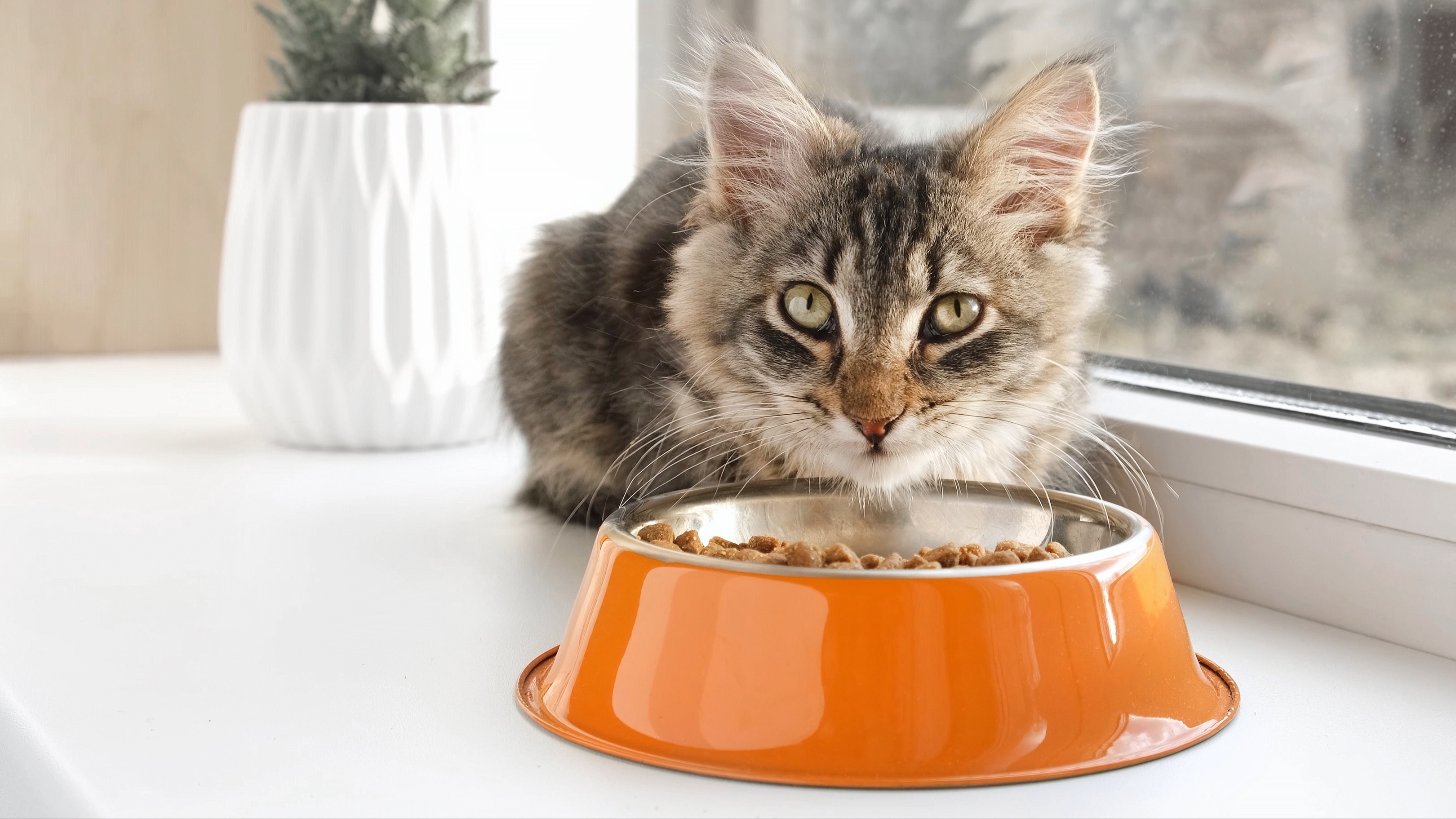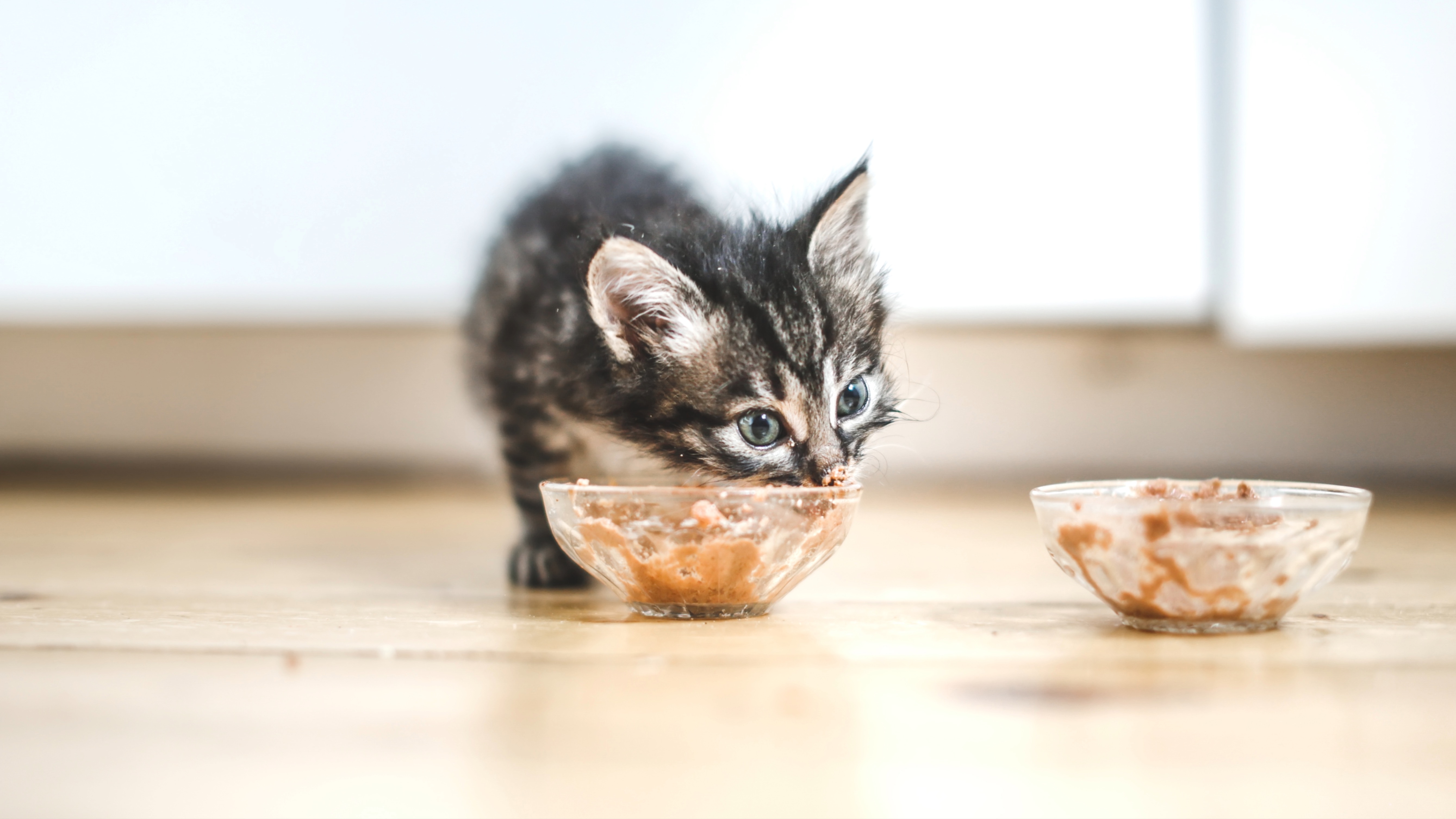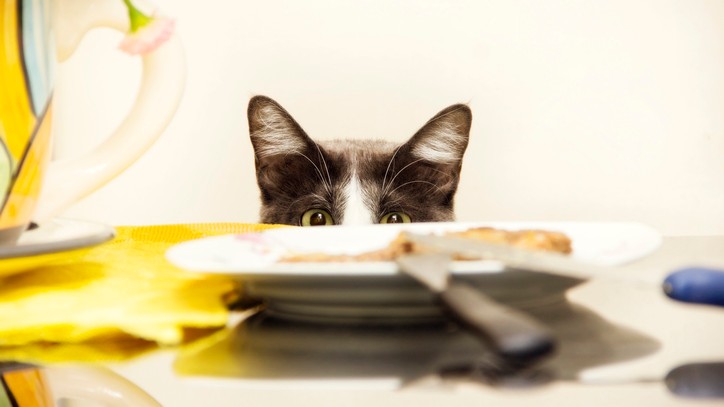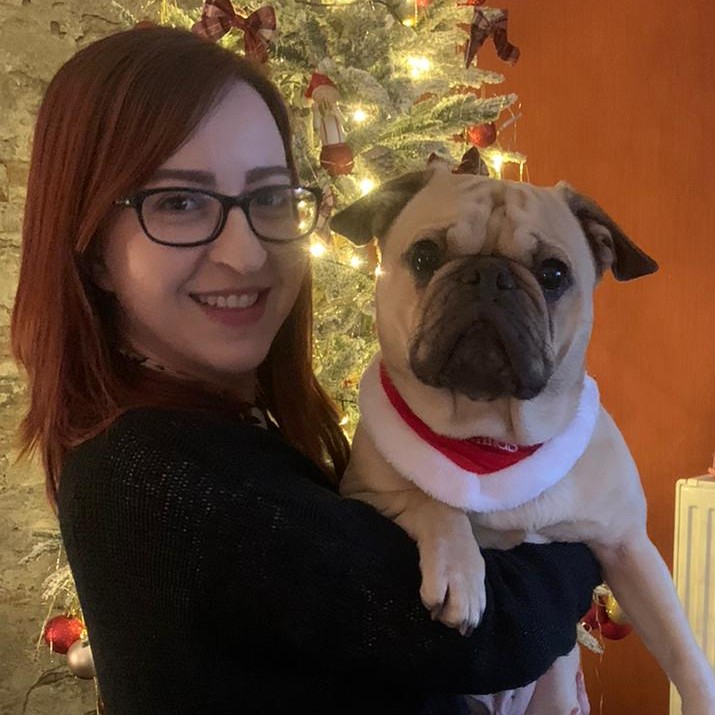How long should cats eat kitten food for? Vet explains why it may be longer than you think
Vet reveals the answer to ‘how long should cats eat kitten food for?’, and what she dished up may just surprise you!

How long should cats eat kitten food for? It’s a question you may be asking if you’ve recently welcomed a new little fur friend into your family. And while we’d love to be able to give you an exact age, it turns out the answer is slightly more complex!
When kittens are weaned off their mother's milk at around four to six weeks of age, they start to transition over to the best kitten food in wet format. Once their bodies have adjusted to that, many parents choose to move them over to a dry food formula.
Whether they’re eating wet or dry, the most important thing is that they’re being nourished with food that’s been specifically designed to meet their needs. Kittens require more protein and calories to fuel their development, but eventually, their nutritional needs change. At this point, kittens need to swap to an adult diet — either the best dry cat food or a wet food alternative.
However, when to do this will vary depending on your kitten’s breed. To help guide you through the process, we spoke to Dr. Joanna Woodnutt to get her thoughts on when you can move your kitten over to an adult diet and how to make the switch safely.

Dr Joanna Woodnutt qualified as a veterinarian from the University of Nottingham where she then went on to practice companion animal medicine in the Midlands. She really took to the consulting side of things and helping clients with medical problems such as dermatology, behaviour and nutrition - anything that involved helping clients understand their pets better.
At what age does a kitten become a cat?
The answer to this question largely depends on the type of kitten you have. "Deciding when a kitten becomes a cat isn’t simple – like humans there are many ways to look at maturity, and they don’t necessarily give the same age as a result," explains Woodnutt.
That said, there are some generalisations. “Most people consider the one year mark to be around the point a kitten turns into a cat. In some cases, cats aged six to 12 months could be considered adult, as in most breeds they’re almost fully grown and sexually mature. However, a year tends to be the established age when a kitten turns into a cat."
Of course, as with all animals, there are some exceptions – large breeds like the Maine Coon, for example, tends to reach maturity between 18 months and two years of age.
Get the best advice, tips and top tech for your beloved Pets
When can kittens eat dry food only?
Most vets recommend feeding your kitten both a dry and wet food diet because cats tend to under-consume water so wet food can help keep them hydrated.
If you want to switch them to the best dry cat food then you should speak to your vet to ensure it will be appropriate for your kitty. Generally, kittens can start to eat dry food at around three to four weeks. They are fully weaned from their mother's milk by six to eight weeks and can eat just kitten food from that time.
When to switch from kitten to cat food

During their time as kittens, cats often feed on small amounts of food frequently throughout the day so it’s a good idea to get to grips with how often you should feed your kitten? As they grow older and mature into full-grown cats, this tends to change to eating just two meals a day.
"Most cats can be safely transitioned to adult cat food once their growth has stopped. In most breeds this will be around 9-12 months of age," advises Woodnutt. "In giant breeds, you may need to leave them eating kitten food until 18 months to ensure they reach their full potential – your veterinarian will be able to advise for your individual cat. Your veterinarian may also advise feeding adult cat food to your kitten once he or she has been neutered, as neutered cats are prone to excessive weight gain and don’t need the extra calories the kitten food provides."
To avoid intestinal upset, such as diarrhea in cats, it's best to slowly swap over from the kitten food to the adult food over a few days. Consult your veterinarian for the best way to portion out the food, but it's usually a ratio of 75/25 kitten to cat food, then 50/50, then 25/75, then 100% adult formulation. Don’t suddenly change a kitten’s food. It can trigger stomach upsets.
Choosing the right food for your adult cat
Once your kitten is making the switch to the best cat food, you’ll be looking for meals that offer high-quality nutrition.
There are many questions you’ll need to ask such as whether high-quality ingredients have been used to make the food and whether the meal provides a complete and balanced diet with appropriate levels of protein, fat, fibre, vitamins, and minerals.
When switching, you also need to keep a careful eye on your cat looking for signs of bright eyes and clean teeth, small, firm, stools, a shiny, luxurious coat, healthy skin and exceptional muscle tone. That way you know you’re on the right track.
"There are lots of things to consider when choosing cat food," explains Woodnutt. "The majority of cats will do fine on the majority of diets, as long as they are ‘complete and balanced’ and designed for the right life stage – that is, for adult cats.
“There are, of course, some cats who will benefit from a more specialized diet. For instance, you might want to choose a diet without certain ingredients due to allergies and intolerances, or a diet designed for cats with medical conditions like kidney disease. Your vet will always be willing to talk about your cat’s diet options and help you find a diet that’s right for your feline family."
Foods to avoid giving your feline

There are some foods you should avoid, too, including onions, garlic, chocolate, any foods containing the ingredient Xylitol and five human foods that are poisonous to cats. You may also want to consider the question, “is homemade cat food better than store bought?” and take precautions when feeding raw meat or liver – which can contain harmful bacteria – and raw eggs which can lead to problems with their skin and coat.
Similarly, raw fish can trigger a vitamin B deficiency, cause seizures, or be fatal, and milk can cause diarrhea. "It’s not a good idea to feed cats human food in general. More than half of cats are overweight, and human food is often more calorific than we realise," Woodnutt advises. "What is ‘a tiny cube of cheese’ to us is actually a large portion of our cats’ daily calorie allowance.” As always, ask your veterinarian for advice if you’re not sure.
Enjoyed this piece and looking for more great kitty content? Then be sure to check out this vet's top six kitten care tips.
Chloe is a freelance writer, editor, and proofreader, who has more than ten years’ experience in creating animal-focussed content. From National Geographic to Animal Planet, Chloe’s passion for creating fact-filled features all about wildlife and the environment is evident. But it’s not just wild animals that Chloe’s fascinated by. Having written more than 75 articles for PetsRadar - and having her very own four-legged friend by her side - it’s no wonder that her love of dogs (and, of course, cats) has grown exponentially.
Her website, www.chloemaywrites.com, and social media pages - @ChloeMayWrites on Instagram, Facebook, and Twitter - showcase her knowledge through daily facts and trivia tidbits. For example, did you know that snails have teeth?!
- Dr Joanna Woodnutt MRCVSVet
- Kathryn WilliamsFreelance writer

